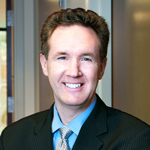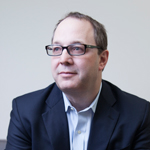Since the inception of the retirement system in the 1920s, San Diego City Employees’ Retirement System (SDCERS) was allocating 100 percent of its unfunded actuarial liability (UAL) to the city, without objection on the city’s part. UAL is the difference between the assets we have on hand to pay benefits and the liabilities we project out in the future for benefits to be paid to members. Following the stock market losses in 2009, fund assets went down and the city’s UAL increased significantly.
Afterwards, for the first time, the city claimed that employees should bear half the burden of the losses caused by the stock-market decline. Fighting the city’s claim would have generated significant litigation expenses, which would then be passed through to the city and its taxpayers as administrative expenses. We felt that such expenses were unwarranted in light of the more than 70-year history of our company’s interpretation of the city charter and the plan that required 100 percent allocation of the UAL to go to the city. We predicted the city unlikely to prevail in its litigation, and decided to curtail those expenses and resolve the litigation without going to trial.
SDCERS provided 70 years worth of annual actuarial reports, experience studies, and any correspondence relevant to the case’s issues. We responded to interrogatories, requested admissions on those documents, and collected multiple depositions of persons involved who had knowledge of how those investment gains and losses were allocated over the past 20–30 years—because that was as long as we had living witnesses to testify.
Resolving the litigation was a global endeavor from SDCERS, with efforts by CEO Mark Hovey, board president Edward Kitrosser, a team of outside counsel, and me. Our trial counsel was Christopher H. McGrath at Paul Hastings LLP, here in San Diego, and he was assisted by Ethan Lipsig, out of the Paul Hastings’s Los Angeles office. We used our own fiduciary counsel, Ashley Dunning and Michael Toumanoff at Manatt, Phelps and Phillips LLP, and our own tax counsel, Terry Mumford, from Ice Miller LLP, in Indiana.
We educated the city decision makers on the lack of merits within the case and the tremendous litigation expense that could be borne by the city and taxpayers. At the same time, SDCERS, through its counsel, and the unions who had intervened in the action, mounted a vigorous defense of the case, receiving interim rulings from the court that pointed out the weaknesses in the city’s case. This two-fold approach allowed the city
decision makers to see the wisdom in settling, enabling us to reach a settlement agreement that satisfied the needs of the city, employee unions, and SDCERS.
The settlement allows SDCERS to continue its long-standing interpretation of the city charter, allocating 100 percent of the UAL to the city, while protecting SDCERS members from the volatility that would occur in their contribution rates if they had to share investment losses that parallel the stock market. The city also agreed to enact an ordinance stating in the San Diego Municipal Codes that 100 percent of the UAL would be allocated to the city. The ordinance cannot be repealed or amended without a “meet and confer”—bargaining with the employee unions—and subjecting a change in the ordinance to a vote of the SDCERS membership. We feel that we have good, strong protection for our 20,600 members in the future out of this settlement.
Had the city prevailed, SDCERS members would unfairly carry those losses, leading to instability in the funding of the system, later resulting in the city being unable to keep a stable pool of employees and SDCERS being unable to keep stability in its employee contributions. That could have been a death knell for the system.
Surprising was the extent to which politics, rather than common sense, played a role in the continuing prosecution of the case. Even the city attorney admitted that his theory was unfair to employees. The biggest hurdle was finding a solution that satisfied the political element. Luckily the city reached an agreement with the unions on the unrelated issues, because that resulted in significant pension-related savings to the city. For the first time in a decade, SDCERS is no longer involved in litigation with its largest plan sponsor, the city of San Diego. Our company sees this as a very important milestone.
With deep roots in the San Diego legal and business communities, Kirby Noonan Lance & Hoge has been solving problems and finding solutions for its clients for nearly 40 years. The law firm has a strong track record of success in handling complex business litigation matters, and its experienced trial lawyers are widely recognized for Bet-the-Company litigation. One of the 2014 “Best Law Firms” by U.S. News & World Report and Best Lawyers® in Tier 1 for Commercial Litigation in San Diego, the firm is honored to work with Elaine Reagan and the San Diego City Employees’ Retirement System in defense of its litigation matters. www.knlh.com

